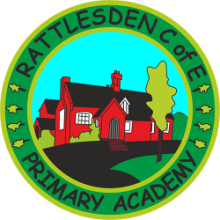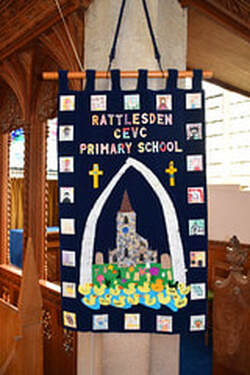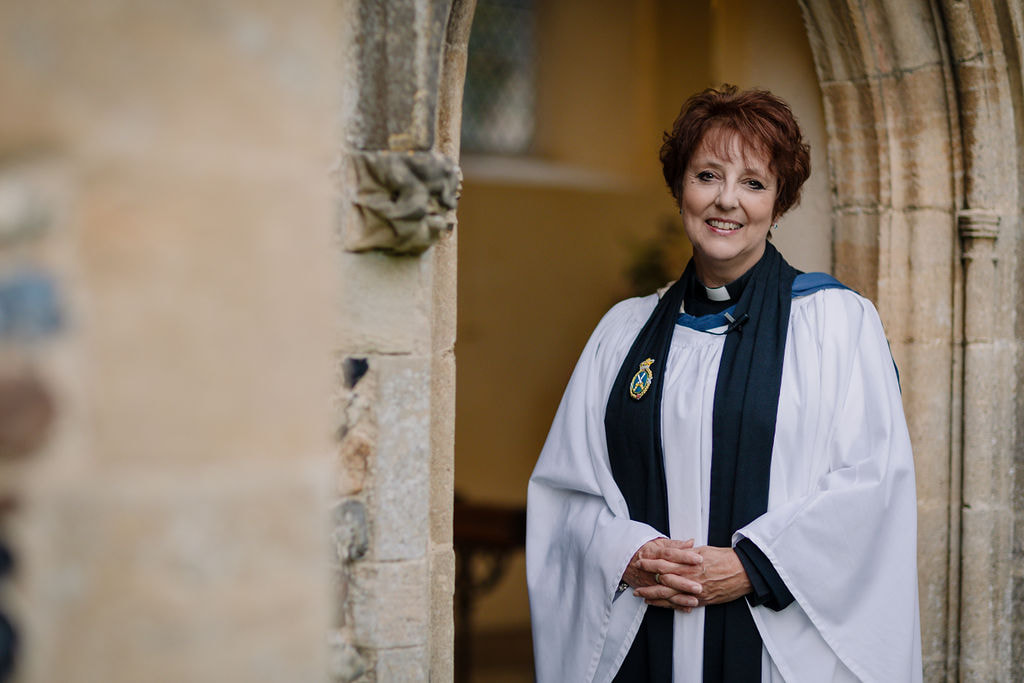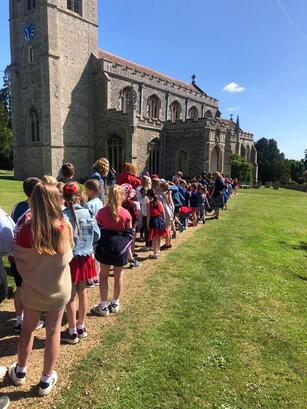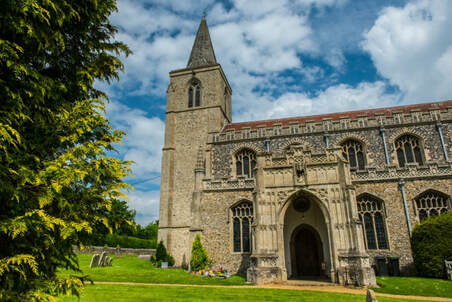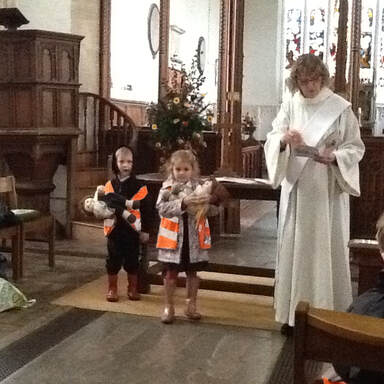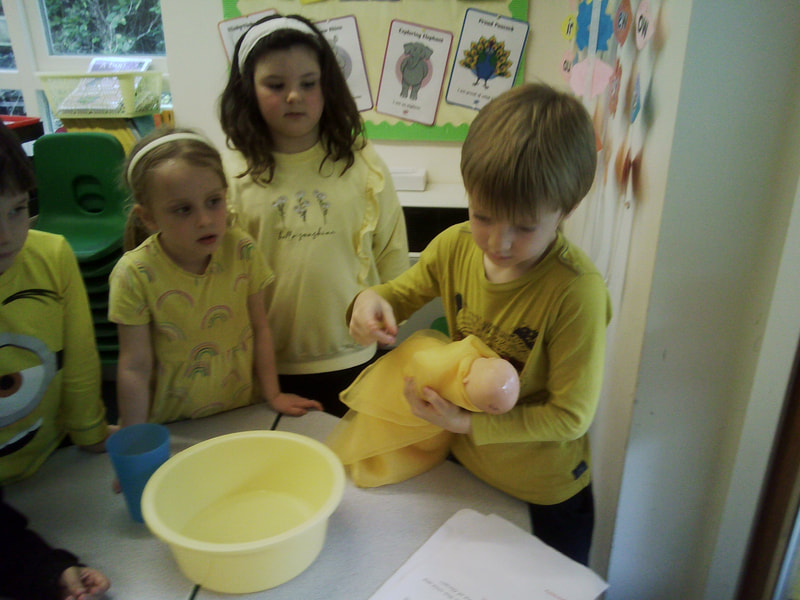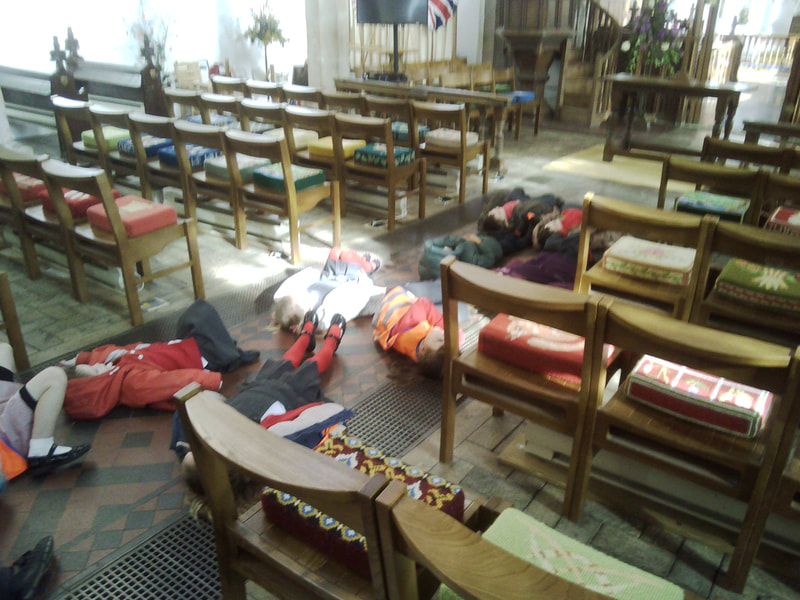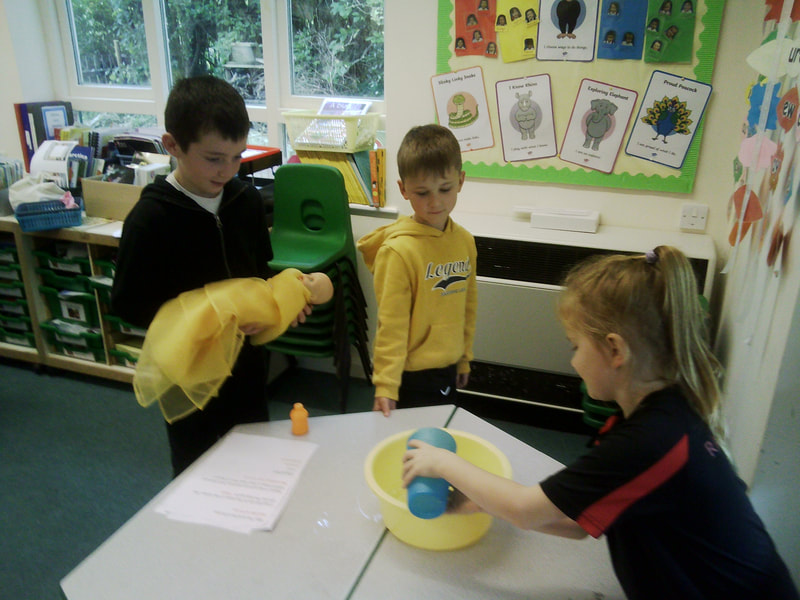Rattlesden Primary School is a Church of England School. Our Mission Statement and School Values underpin everything that we do. We are an inclusive school, where everyone has a valuable contribution to make to our school community – we recognise that for many of our families faith is important, whilst others may have none.
Intent
At Rattlesden Primary Academy, we believe RE has an important role in children’s moral, social, cultural and spiritual growth. RE promotes open-mindedness and tolerance, as well as an understanding of ourselves and other people. We aim to engage children’s appreciation and understanding of the beliefs and practices of people everywhere, from our local community to those in the wider, global community. Our principles are to learn ABOUT religion and belief and to learn FROM religion and belief.
Implementation
As a Church of England school, RE permeates our school ethos. We have very close contact with the local clergy, Reverend Tiffer and his wife Amy are a big part of our school life. Our children visit St Nicholas Church frequently, both to worship and also as part of their RE curriculum.
We have school themes, eg Friendship, Generosity, Compassion, which are used each half-term and develop children’s understanding in Collective Worship.
To teach RE, we use the Emmanuel Scheme of Work in all classes. This is detailed and comprehensive, giving teachers clear breadth and depth, which children build on year by year. As a Christian school, the majority of the units are Christian, but we also explore other faiths, including Judaism, Islam and Humanism. We may ask visitors (in person or virtual) to help us teach units, to enhance children’s understanding. We ensure RE lessons are fun and exciting and meet the needs of all learners. This may include cooking, creative activities, role-play and outdoor learning. We sometimes plan in whole-school/Key-Stage days, organised and delivered by outside organisations, eg Kagera Day.
Impact
By the end of each key stage, we expect pupils to know, understand and apply skills related to learning about religion and belief, and learning from religion and belief.
Staff assess children using the learning grids from the Emmanuel scheme in Key Stages 1 and 2, and in Early Years using Development Matters statements. We also carry out learning walks, book scrutinies and pupil perception questionnaires as part of our RE assessment.
At Rattlesden Primary Academy, we believe RE has an important role in children’s moral, social, cultural and spiritual growth. RE promotes open-mindedness and tolerance, as well as an understanding of ourselves and other people. We aim to engage children’s appreciation and understanding of the beliefs and practices of people everywhere, from our local community to those in the wider, global community. Our principles are to learn ABOUT religion and belief and to learn FROM religion and belief.
Implementation
As a Church of England school, RE permeates our school ethos. We have very close contact with the local clergy, Reverend Tiffer and his wife Amy are a big part of our school life. Our children visit St Nicholas Church frequently, both to worship and also as part of their RE curriculum.
We have school themes, eg Friendship, Generosity, Compassion, which are used each half-term and develop children’s understanding in Collective Worship.
To teach RE, we use the Emmanuel Scheme of Work in all classes. This is detailed and comprehensive, giving teachers clear breadth and depth, which children build on year by year. As a Christian school, the majority of the units are Christian, but we also explore other faiths, including Judaism, Islam and Humanism. We may ask visitors (in person or virtual) to help us teach units, to enhance children’s understanding. We ensure RE lessons are fun and exciting and meet the needs of all learners. This may include cooking, creative activities, role-play and outdoor learning. We sometimes plan in whole-school/Key-Stage days, organised and delivered by outside organisations, eg Kagera Day.
Impact
By the end of each key stage, we expect pupils to know, understand and apply skills related to learning about religion and belief, and learning from religion and belief.
Staff assess children using the learning grids from the Emmanuel scheme in Key Stages 1 and 2, and in Early Years using Development Matters statements. We also carry out learning walks, book scrutinies and pupil perception questionnaires as part of our RE assessment.
Priorities for Religious Education 2023-2024 Action Plan
1. Develop a visible Christian presence in the school
2. Ensure continuity of teaching and access to RE lessons across the school
3. All staff will be familiar with the new changes to the Emanuel Project
1. Develop a visible Christian presence in the school
2. Ensure continuity of teaching and access to RE lessons across the school
3. All staff will be familiar with the new changes to the Emanuel Project
Please click the links below to see our coverage plans.
Long Term planning and Coverage Early Years
Long Term planning and Coverage Key Stage 1
Long Term planning and Coverage Key Stage 2
Long Term planning and Coverage Year 6
Long Term planning and Coverage Key Stage 1
Long Term planning and Coverage Key Stage 2
Long Term planning and Coverage Year 6
Please click to view the Religious Education skills progression document.
Please click to view the Religious Education vocabulary progression document.
Please follow the link below to view the Religious Education Policy.
| re_policy_updated_june_21.docx | |
| File Size: | 103 kb |
| File Type: | docx |
Overview of Emmanuel Project Scheme of Work .
At Rattlesden we follow the Emmanuel project. The syllabus supports the aims and values of the school. The syllabus gives children a balanced approach to religious material. As children progress through school they encounter six different faiths and a non-religious worldview underpinning the heart of faith linking together stories, practices, festivals and ways of life.
Children will learn about religion but also learn from religion.
Children are encouraged to be curious and acquire knowledge and understanding so that they are informed and respectful of different faiths.
Children also need to learn from RE so they can be inspired and be able to reflect on their own spirituality, morals, cultural development and growth as a person.
Children will learn about religion but also learn from religion.
Children are encouraged to be curious and acquire knowledge and understanding so that they are informed and respectful of different faiths.
Children also need to learn from RE so they can be inspired and be able to reflect on their own spirituality, morals, cultural development and growth as a person.
We consider the academic teaching and learning of religions to be one of the the core subjects within our curriculum and adhere to the National Society’s Statement of Entitlement for RE which can be read below:
| emmanuel_project.docx | |
| File Size: | 715 kb |
| File Type: | docx |
Click to read the National Society Statement for RE
Find Us |
|
Website by lizhawkins.co.uk
